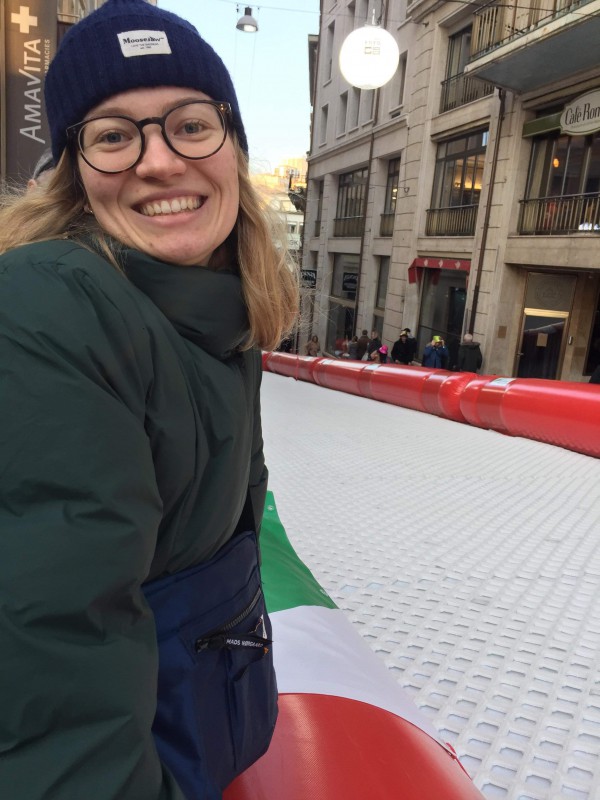Linnea Mørch Folkmann
Interview by Carey Sargent, EPFL, NCCR MARVEL
Were you always interested in science?
At some point when I was young I wanted to become an interior designer or psychologist but I liked science so much that people were asking me why don’t you just go in that direction? I liked school in general though, languages and everything.

How did you hear about the INSPIRE Potentials Program?
Actually, my husband found it on Twitter. At the time he was applying for some money to be able to do a postdoc here and we were wondering how we could manage to be at the same place. This was just a great opportunity to be able to keep on doing what I wanted to do in the same place as him.
What is your master’s project on?
Overall, my project is about predicting electronic properties of amino acids using a machine learning approach. Amino acids are the building blocks of proteins and all biological system are made of proteins. Proteins are very large, complicated molecules that are hard to understand. One way to characterize the proteins is by looking at the electronic properties like dipole moment and polarizability. Those can be calculated using quantum mechanics but one of the limitations of that is the rapid increase of the computational costs with system size and proteins are very large. This is why we want to do this machine learning approach instead. Right now I’m working on machine learning models that can predict these electronic properties based on the structures of like 20,000 training examples with different configurations of amino acids. Hopefully in the end we have a model can that predict these properties for polypeptides or even a small protein.
What’s the best thing about the program?
For me, it’s all the new people that we have met and got to work with and this very international environment. It’s very fascinating and inspiring to work in an entirely new environment with people who know very much about what they’re doing. I feel very lucky to get the opportunity to learn from what I think are some of the very best in their field—it feels like that to me—and get the chance to ask all the stupid questions to those people.
What are your plans for the future?
I’m still very open to any opportunity that I get and I haven’t decided on anything specific yet. It depends on what the future brings but if I get an opportunity to do a PhD I would definitely consider it very much.
Do women face particular challenges in the sciences?
I have never experienced it myself. I hear people talk about it a lot and I see that we have mostly male professors in Denmark as well, but we have equal female and male students in chemistry. Maybe it has changed over the years, or maybe women in Denmark just stop when they start having families. Especially people doing experiments because there it gets very complicated being in a lab, having a family, breastfeeding, stuff like that, which is not a problem for men. In the theoretical part, I don’t have an explanation for what it could be. Maybe we need more role models...this is starting to come though and so if we just give it some years, we’ll see more women there. Women are encouraged to do science in Denmark. Actually, I feel that I get more help to do science rather than being discouraged from doing it.
Any advice for young girls interested in the field?
Just try different fields, see if you think it’s fun. I remember in high school there were some classes in quantum mechanics and programming and I thought that it was too much, but somehow I ended up in those fields anyway, just taking small steps one at a time and figuring out that it’s actually what I’m most interested in. Don’t be too self-critical—you don’t have to be 110% sure that you’re doing it right, just try to do it.
